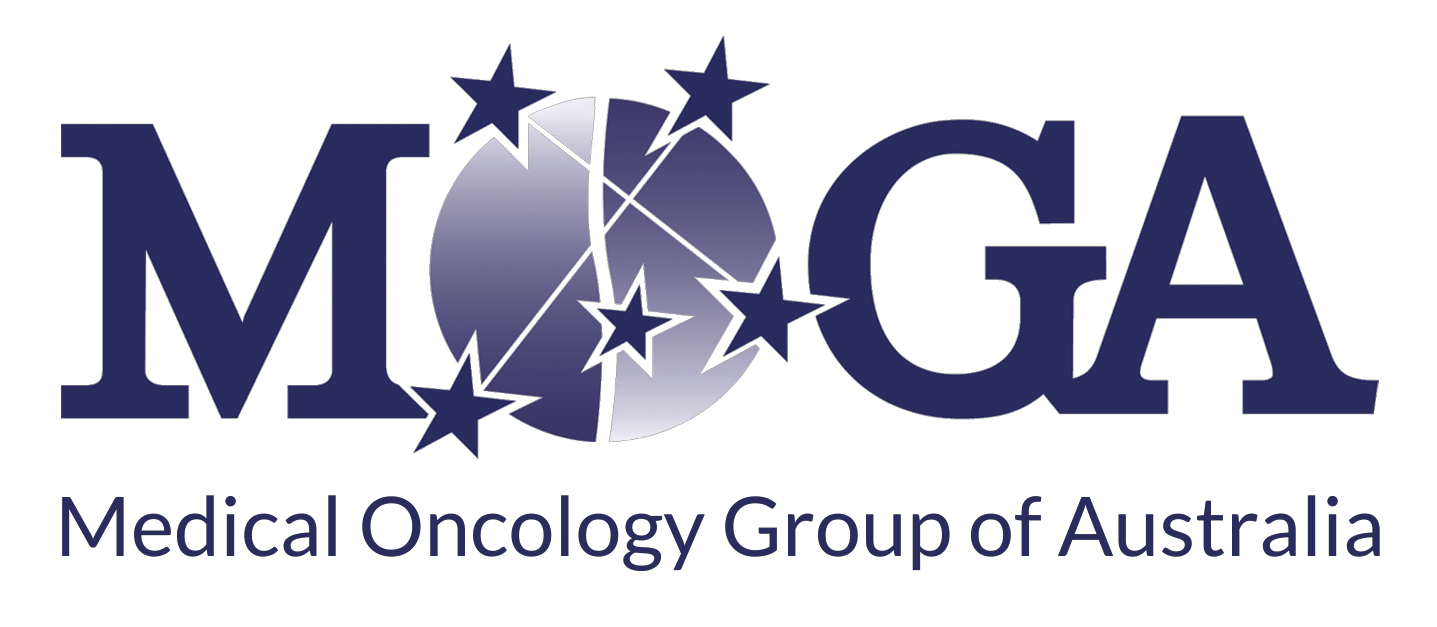MOGA Executive Report – October 2025
October 2025
I have now been Chair of MOGA for a little over a month. It has been a busy time for MOGA! Before I recap our activities, I felt it prudent to introduce our new Leadership for the first time:
A/Prof James Lynam - Chair
I am based in Newcastle, NSW, and specialise in GI, GU and Neuro-Oncology. I recently stepped down as the Director of the Medical Oncology Department at the Calvary Mater Newcastle. I am currently on secondment at the Cancer Institute NSW as a Senior Clinical Advisor. I am a previous Chair of the Medical Oncology ATC at the RACP and spent much of my time advocating for 3 years of core training. Like many of the membership, I am concerned about disturbing patterns in workload and the Med Onc workforce within Australia and am working with the new MOWWWA to highlight this issue.
A/Prof Connie Diakos – Deputy Chair
I am based in Sydney and spend the majority of my time as a senior staff specialist at Royal North Shore Hospital, caring for patients with GI, gynaecological, NET and breast cancers, with some private practice. I am interested in education, from medical students through to higher degree research students and have been convening some of the educational initiatives in MOGA for the past couple of years. I also have a keen research interest with translational and clinical research programs both locally and through my involvement with AGITG. I share the concerns of much of the MOGA membership over the future of our specialty, given the workload and well-being issues we are now confronting and the impact this is exerting on attracting and retaining the next generation of medical oncologists.
Dr Jess Smith – Treasurer
I am a Sydney-based medical oncologist and passionate about teaching and advocacy. I previously served as the national chair of the Young Oncologist Group, advocating for the needs and interests of young oncologists nationwide. I am actively involved in education, particularly in strengthening the educational experiences of our medical students and supporting flexible pathways. I have also been involved in working with the RACP to improve the program delivered to our trainees. I am interested in improving the well-being of the medical oncology specialty and addressing workforce challenges.
As mentioned above, it has been a busy month for the Executive:
We had multiple meetings amongst ourselves and the RACP as to whether the Executive should take a position in the RACP EGM. We all felt strongly that, as we are inextricably linked with the College, it was important for us to articulate our support for EGM 1 and the new proposed governance structure of the RACP board. If you missed our statement, please see it here.
Of greater importance to the Specialty is the recent announcement of the PBAC's approval of expanded indications for Ipilimumab and Nivolumab. The new listing will expand access to all current TGA-listed indications in the advanced/metastatic setting and remove the barriers to retreatment that we currently face. Personally, I see this as a massive win and can already think of several patients who will benefit from this listing. The bigger issue is the expanded indication of use into the Rare Cancer sphere. Not to understate the implications of this, but not only will Australia be the first nationalised health system to introduce this indication for immunotherapy, this is also a MASSIVE shift in the PBS prescribing paradigm. Namely, we are moving away from prescribing these high-cost drugs only for federally approved indications, to prescribing them based on clinical judgement. This opens up a myriad of opportunities but is not without its significant risks and we will all have to consider and reflect on which patients it will be appropriate to prescribe these drugs for and the broader implications of our prescribing patterns on health funding utilisation (especially when we are struggling with the adequacy of funding Med Onc positions across the country).
I would like to acknowledge the efforts of MOGA’s Oncology Drug Working Group (ODWG) and its co-chairs, A/Prof Deme Karikios and A/Prof Christopher Steer, in working with the PBAC, government and the sponsor to expand access to immunotherapy on the PBS.
What’s next for the Executive?
We look forward to reviewing the EOIs for our new Advanced Cancer Therapeutics in ONcology (ACTION) working party. We see this group as being analogous to our ODWG but working with MSAC to improve access to non-PBS cancer therapeutics.
We are continuing to support our specialty with an upcoming Breast Preceptorship and a Medical Ethics Webinar. Our subcommittees are busy, including our newly formed Workforce, Workload Committee. In addition, we have assisted in funding our junior colleagues' attendance at conferences to further expand their impact.
We have an exciting year ahead, and we are looking forward to delivering more for the oncology community.
A/Prof James Lynam, Chair
A/Prof Connie Diakos, Deputy Chair
Dr Jess Smith, Treasurer
